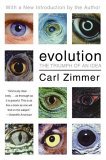Its my own turn at bat in our departmental colloquium today. Here's the blurb on what I'll talk about:
Becoming urban: behavioral and evolutionary implications of living in the city
Dr. Madhusudan Katti, Department of Biology, California State University, Fresno
Abstract
The city may be the ultimate expression of the human effort to control our environment: in evolutionary ecological terms, it represents a strategy to minimize the risks of starvation and predation by creating habitats which dampen natural variability in climate and food availability, and provide shelter from predators. Simultaneously, humans also generate a considerable surplus of food, making cities attractive habitats to many other wild species. Recent theoretical work by myself and colleagues shows that typical changes in spatio-temporal patterns of food availability (higher and more predictable) and predation regimes (may be lower) accompanying urbanization can alter competitive dynamics such that weak competitors survive better in urban than in more natural habitats. This has several implications for species that are able to invade the novel urban habitat: higher population densities, potentially reduced selection pressures, and in turn, greater vulnerability to sudden environmental changes. In this presentation, I explore consequences for the evolution of commensalism and the continued coexistence of other species with humans, using recent work on house sparrows (the ultimate commensal now at risk in urban habitats), corvids (suburban Scrub Jays), and south Asian primates (urban Macaques and Langurs). I will also present an overview of several projects currently ongoing in my laboratory focusing on different effects of urban environments on bird behavior, ecology, and diversity, and describe opportunities for students to get involved!
On: Friday, October 3, 2008, At: 3:00-4:00 PM, In: Science II, Room 109








1 comments:
Any chance this can be recorded and put online ? even a podcast ? :)
Post a Comment